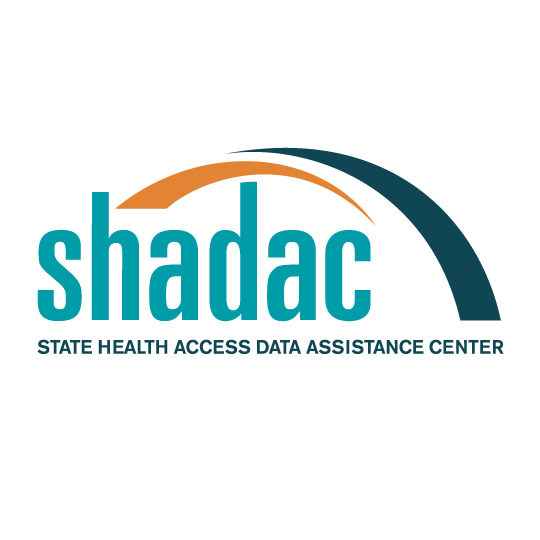Publication
The Medicaid Undercount and Bias to Estimates of Uninsurance: New Estimates and Existing Evidence
Call, K. T., G. Davidson, M. Davern, L. A. Blewett, and R. Nyman. 2008. “The Medicaid Undercount and Bias to Estimates of Uninsurance: New Estimates and Existing Evidence.” Health Services Research 43(3): 901-14.
OBJECTIVE: To examine whether known Medicaid enrollees misreport their health insurance coverage in surveys and the extent to which misreports of lack of coverage bias estimates of uninsurance. DATA SOURCE: Primary survey data from the Medicaid Undercount Experiment. STUDY DESIGN: Analyze new data from surveys of Medicaid enrollees in California, Florida, and Pennsylvania and summarize existing research examining bias in coverage estimates due to misreports among Medicaid enrollees. DATA COLLECTION METHOD: Subjects were randomly drawn from Medicaid administrative records and were surveyed by telephone. PRINCIPAL FINDINGS AND CONCLUSIONS: Cumulative evidence shows that a small percentage of Medicaid enrollees mistakenly report being uninsured, resulting in modest upward bias in estimates of uninsurance. A somewhat larger percentage of enrollees report having some other type of coverage than no coverage, biasing Medicaid enrollment estimates downward but not biasing estimates of uninsurance significantly upward. Implications for policy makers' confidence in survey estimates of coverage are discussed.
Publication
Evaluating Federal Funding Formulas - The State Children’s Health Insurance Program (Summary)
This Executive Summary highlights key findings of SHADAC's research studying the impact of using state level data inputs on the number of low income uninsured children from the Current Population Survey (CPS) to determine the distribution of federal dollars to the states. February 2007.
This summary is based on the published article:
Blewett, L. A. and M. Davern. 2007. “Distributing State Children’s Health Insurance Funds: A Critical Review of the Design and Implementation of the Funding Formula. Journal of Health Politics, Policy and Law 32(3):415-55.
Abstract: The development of formulas to distribute federal funds to states based on demographic data continues to challenge data and policy analysts. Analysts must forward the best objective statistical analysis and data inputs to formula specifications while acknowledging the politics of the legislative process that authorizes federal funding formulas. This article evaluates the federal funding formula for the State Children's Health Insurance Program (SCHIP) using key formula components of need, effort, capacity, and performance. We also examine the operationalization and measure of the target population in the SCHIP funding formula. Legislative decisions on formulas are, by nature, based on compromises that balance competing policy objectives. The analyst's role is to continually review current research standards, data quality, and relevant formula inputs and make recommendations to refine federal funding formulas to better target resources to their intended populations.
Publication
Disparities and Barriers to Utilization among Minnesota Health Care Program Enrollees
This report presents findings from a statewide survey of 4,902 Minnesota Health Care Program (MHCP) enrollees designed to assess racial and ethnic disparities in the use of preventive and other health services, as well as barriers that discourage the use of those services. December 2003.
Publication
A Needed Lifeline: Chronically Ill Children and Public Health Insurance Coverage
This report was released for the 2008 Cover the Uninsured Campaign, a project of the Robert Wood Johnson Foundation to highlight the fact that too many Americans are living without health insurance and to demand solutions from our nation's leaders. The report includes a state-by-state analysis on children’s access to health care services, especially children who suffer from chronic illness. August 2008.
Publication
Medicaid Under-reporting in the CPS and One Approach for a Partial Correction
Survey estimates of public health insurance program enrollment tend to be lower than those compiled from administrative enrollment data for those same programs, a discordance which is particularly apparent for Medicaid. The crude Medicaid undercount in the Current Population Survey’s Annual Social and Economic Supplement (CPS), the most prominently used survey for policy research that measures health insurance coverage, was 32 percent in both 2000 and 2001. Given the important uses of the CPS data, improved understanding of the undercount in the CPS is crucial. This paper presents parameters from two logistic regression models. These parameters can be used to predict the probability that the Medicaid administrative data imply that a CPS sample member actually had Medicaid. Originally published October 2007; revised with a minor code revision for Model 2 in November 2008 (revisions are reflected in the attachments).
The second download available on this page is a text file with the Stata code for this adjustment.









